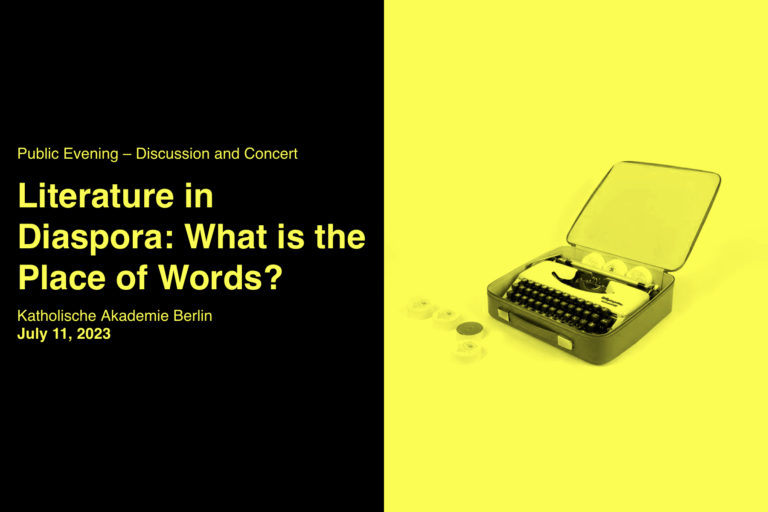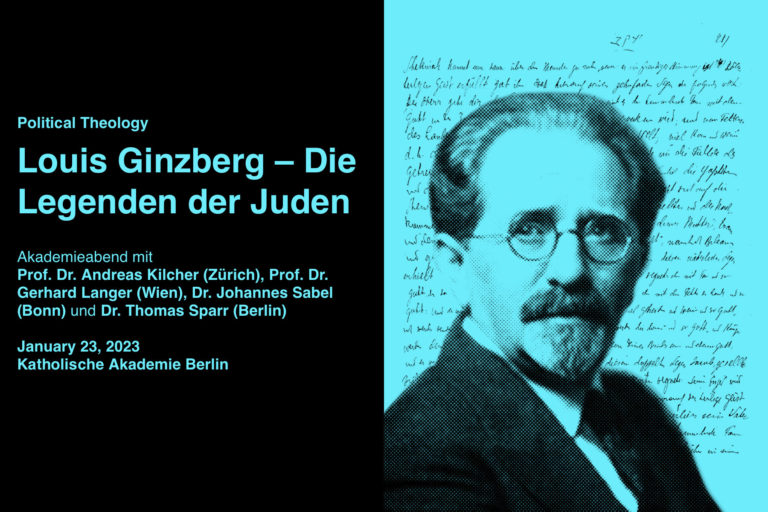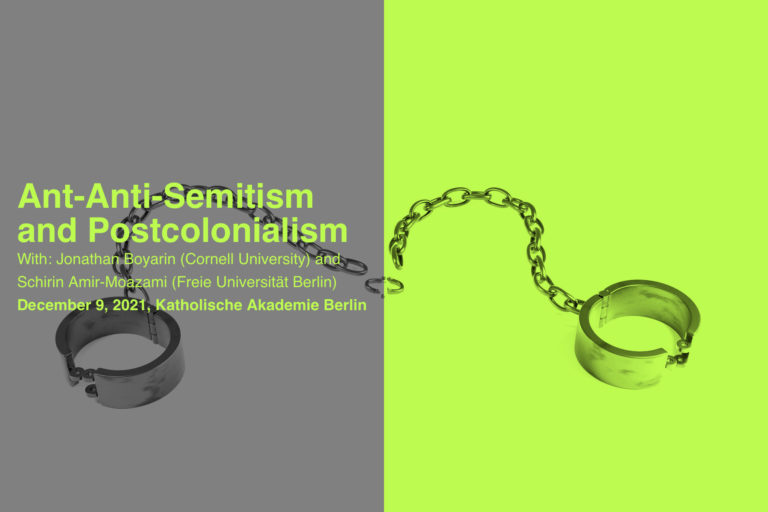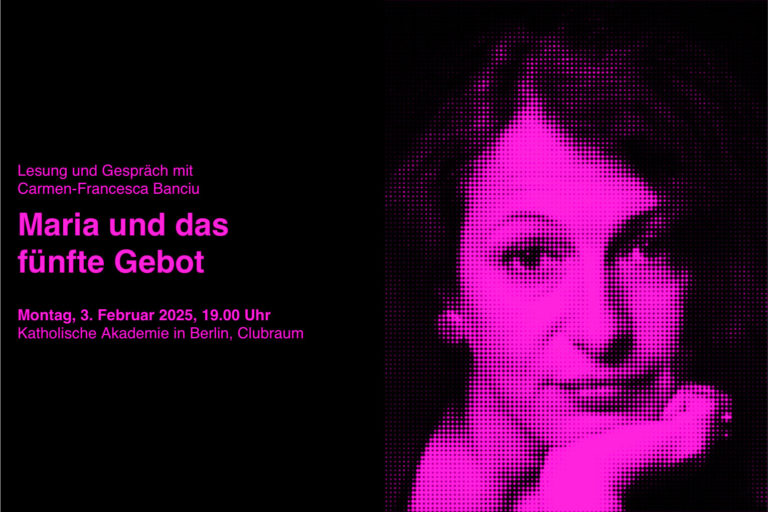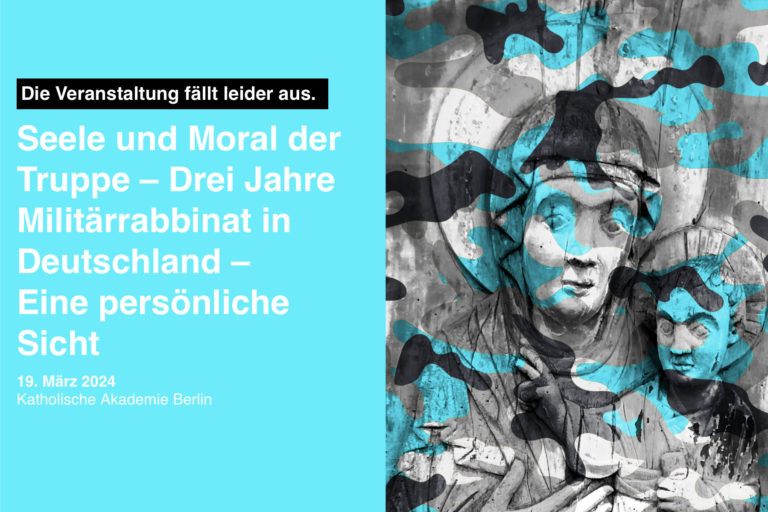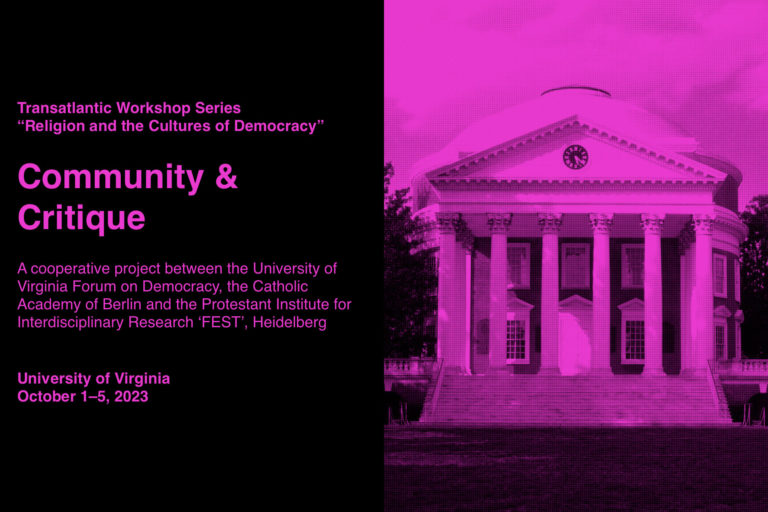Master Class on Modern Talmudic Hermeneutics I
Katholische Akademie Berlin with Oded Schechter and Elchanan Reiner
December 7–9, 2021
Master Class on Modern Talmudic Hermeneutics
The Berlin Center for Intellectual Diaspora brings together graduate students and early-career scholars to participate in a master class on modern talmudic hermeneutics, which will take place on December 7-9, 2021, at the Katholische Akademie Berlin.
Organisation: Prof. Dr. Elad Lapidot
The master class will consist in text study led by two instructors.
Elchanan Reiner (Tel Aviv University, emer.; The National Library of Israel) will focus on the origins of modern talmudic interpretation in the invention of print especially in Central and Eastern European study.
Oded Schechter (Makhloykes Berlin) will focus on the hermeneutic break reflected in the new Lithuanian study of the 19th and 20th century, especially of Chaim Halevi Soloveitchik.
While discussions will be held in English, participants have basic reading proficiency in rabbinic Hebrew and Aramaic and basic familiarity with talmudic texts. The program is open to researchers also in fields beyond rabbinics, such as other areas of Jewish thought, philosophy, hermeneutics, literature, religion, history or culture.
Media on Youtube
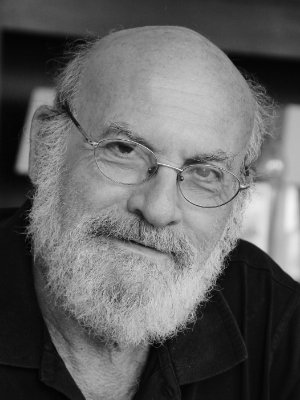
Elchanan Reiner was born in Jerusalem in 1946, he is Professor Emeritus of Jewish History at Tel Aviv University. Since 2016 he is the academic director of the National Library of Israel.
His main field of research is the cultural history of Ashkenazi, especially Eastern European Jewry in the Early Modern Period. In his research he is focusing on the beginning of the printed culture in the Ashkenazi milieu, the history of the Hebrew book and the history of the Early Modern Yeshivot and scholarship (“Lamdanut“). Among his publications concerning this field is ““The Yeshivas of Poland and Ashkenaz During the Sixteenth and Seventeenth Centuries – Historical Developments”, (Studies in Jewish Culture in Honor of Chone Shmeruk, Jerusalem, 1993); ”The Ashkenazi Élite at the Beginning of the Modern Era: Manuscript versus Printed Book,” in: Jews in Early Modern Poland (=Polin, 10), London 1997 and “Beyond the Realm of the Haskalah: Changing Learning Patterns in the Jewish Traditional Society,” in: Simon Dubnow Institute Yearbook, 6 (2007).
Reiner also specializes in the study of the oral religious culture of the late antiquity and medieval Jews in Palestine, dealing with local religious traditions and myths connected to holy places. His early work on pilgrimages to Palestine in the Middle Ages has been followed by related publications such as “From Joshua to Jesus: The Transformation of a Biblical Story to a Local Myth (A Chapter in the Religious Life of the Galilean Jew),” in: Sharing the Sacred: Religious Contacts and Conflicts in the Holy Land, Jerusalem 1998.
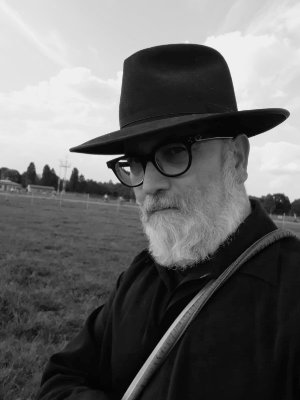
Oded Schechter is a philosopher and talmudist. He lives in Berlin and is the co-founder of the Berlin Makhloykes Center.
Participants
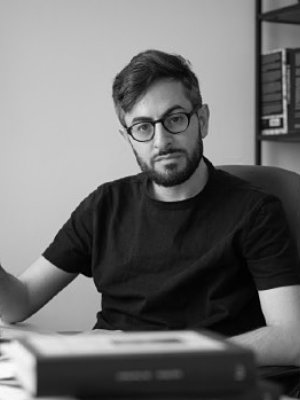
Itamar Ben Ami is a research fellow at the Humboldt University’s Faculty of Theology, and a graduate of the ultra-Orthodox yeshiva world. His research focuses on critical and theocratic conceptualizations of the modern sovereign state, German-Jewish thought, and ultra-Orthodox political theology.
His articles are forthcoming in Harvard Theological Review, the Jewish Quarterly Review, and Jewish Social Studies.
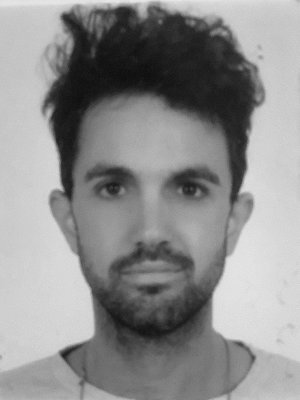
Omri (Hannah) Ben Yehuda (he/she) is a scholar of comparative Jewish literatures in EUME, Forum Transregionale Studien, Berlin. She published two books, 25 scientific articles and essays and more than 80 essays and op-eds to the general public. Currently she is working on a co-edit volume on Gaza as an Israeli hetrotopia, co-edited with Dotan HaLevi, to be publish in sring 2022 in Pardes publishing.
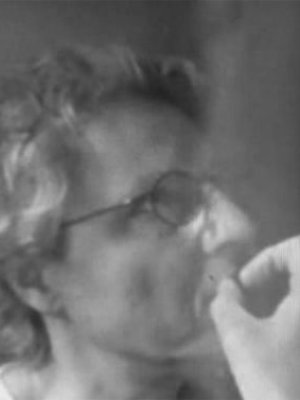
Judith v Bresinsky — a student of Jewish literature from late antiquity — interested in narrative structures, in forms and transmissions of narratives, and in the way we construe and construct both our collective historical truths and our sense of belonging.
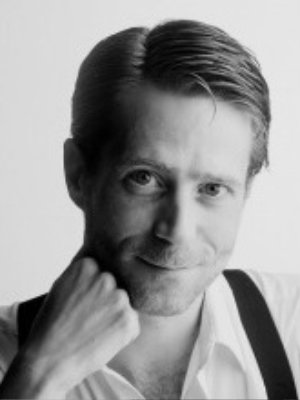
Martijn Buijs is a Research Fellow at the Rosenzweig Minerva Center at the Hebrew University in Jerusalem. A scholar of European philosophy since Kant, he is currently working on a project on Franz Rosenzweig and the philosophy of love.
He is particularly interested in the ways in which modern philosophers have tried to articulate a philosophical future for the religious past. Yet philosophers’ understanding of the religious question often depends on a sparse and filtered knowledge of tradition. A closer look at the sources themselves is needed to grasp the stakes of the encounter between philosophy and religion.
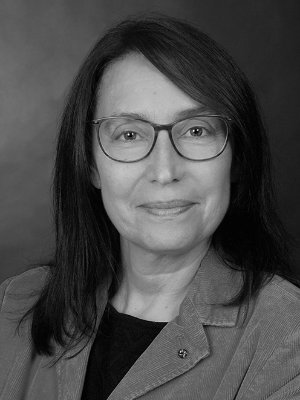
Liliana Furman, born 1965 in Buenos Aires, Argentine. Studies in Psychology (UBA) & Jewish Education (Michlelet Schazar, Bs. As. & HUJI), M.A. in Jewish Studies, University of Freiburg.
Program Director for Germany at the American Jewish Joint Distributtion Committee, 1998 -2020. Since 2017 Scientific Associate at the Pnina Navé Levinson Seminar für Jüdische Studien, Universität Paderborn. Interests: Rabbinic Literatur, Gender Issues, Identities and Alterities , Institutionalization and Conflict in Jewish Narratives and History.
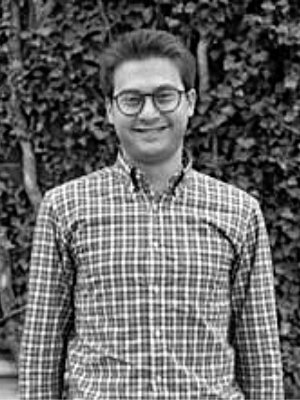
Eliav Grossman is a PhD candidate in the Department of Religion at Princeton University.
He is interested in the redaction and transmission of rabbinic literature, law, and culture in Late Antiquity and the early Islamic period, with particular attention to Syriac and Arabic literary developments as critical contexts.
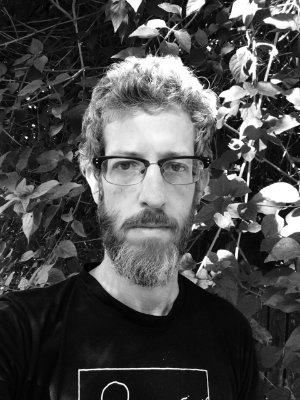
Ido Harari studies modern Jewish thought in its religious and political contexts. He has a BA and MA in Jewish thought from the Hebrew University of Jerusalem. His doctorate dissertation (written at the department of Jewish thought in Ben-Gurion University of the Negev) examines how Jews who grew up in a secularized and assimilated environment, in the German cultural sphere of the early 20th century, turned to Orthodox Judaism and to the European and Eretz Israeli “east” in a way that combined religious, ideological and political criticism.
His main research interests are Haredi and Ultra-Orthodox thought, the thought and history of Jews in German-speaking sphere and in Eretz Israel/Palestine, relations between Jewish life and thought and Muslim and Christian life and thought, Secularism, and critique of Secularism.
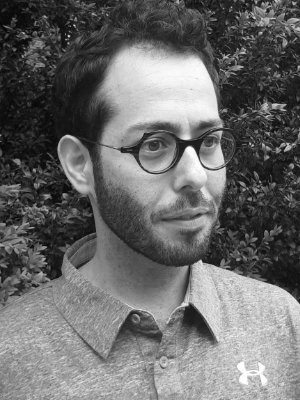
Zvi Kunshtat is a Ph.D. candidate in History at Johns Hopkins University, specializing in the history of the Jews and Judaism in early modern Europe. Zvi’s dissertation, Yeshivot and their Students in Early Modern Central Europe, explores how studying was conceived of as a religious practice and the ways in which learning and learning institutions shaped early modern Jewish culture.
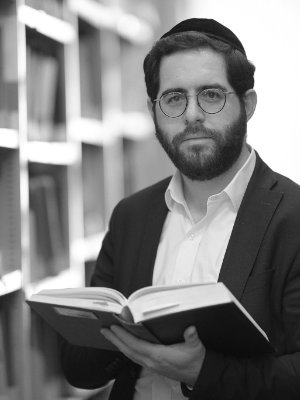
Yosef Miller Is married to Shira and he is a father to Yaakov and Eitan. He is a haredi rabbi. Yosef was studied and graduated yeshivot (Hebron and others) and koillelim. At this point of his life Yosef is completing a master’s degree in general philosophy, at the Hebrew University of Jerusalem. Additionally, he is a teaching assistant at the Hebrew University, and he also teaches Jewish philosophy, Talmud and Halacha thought at the Be’er Ashdod seminary, and he also lectures to diverse audiences on various topics. in addition to that, Yosef serves as dean in the leadership program ‘Shluchey Tzibur’, which designed for young haredi leaders who study at the Hebrew University. Research-wise he focuses on the metaphysics and philosophy of the halacha.
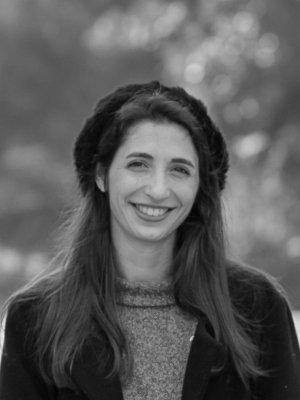
Netta Schramm is a Minerva Fellow at Ludwig Maximilians Universität in München and a graduate student at the Hebrew University of Jerusale. She is interested in the Hermeneutics of oral and written texts. Her Ph.D. project is titled: “Sound Beliefs: Narrative and Performance in the works of Yeshayahu Leibowitz, Ovadia Yosef and Irving Greenberg”.
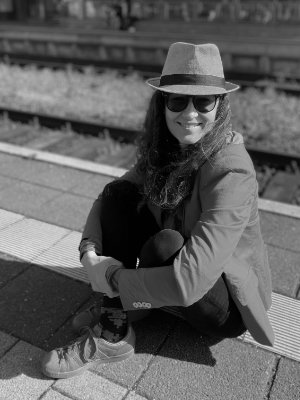
Ena Raphaëlle Oskar Schulz is a PhD candidate in Rabbinic Literature at the Hebrew and Judaic Studies department at New York University. A performing multimedia artist herself – her recent pieces include a composition and performance piece of Hannah Arendt’s poem Die Untergrundbahn, for which she won the prize of the Austrian Broadcasting Corporation, the film Cricket, which was part of the official selection of the 2020 ZEBRA Poetry Film Festival in Berlin, as well as visual artwork in response to Roland Barthes’ Mythologies, featured in Summer 2021 edition of Bildbruch Magazine – Raphaëlle’s interests revolve around performance and performativity in and of the Talmud.
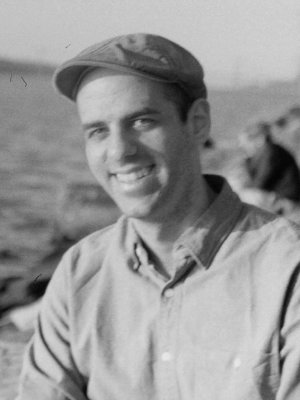
Avinoam J. Stillman studies early modern Jewish history, with particular interests in kabbalah in East-Central Europe and the Ottoman Empire and in Hebrew manuscripts and printed books. He is a doctoral candidate at Freie Universität Berlin and an associate of the research group “Patterns of Knowledge Circulation.” He completed his MA at Ben Gurion University and his BA at Columbia University. He is also a co-founder of “Blima Books,” a small press based in Jerusalem and Berlin and dedicated to “Radical Jewish Literature.”
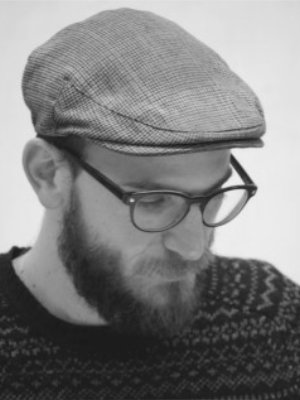
Assaf Tamari is a post-doctoral research fellow in the Polonsky Academy for advanced studies in the humanities and social sciences at the Van Leer Jerusalem Institute. He received his Phd from Ben-Gurion University of the Negev, where he wrote his dissertation titled the “Lurianic body Discourse,” under the supervision of prof. Boaz Huss. Before Van Leer he spent a year as a Rothschild-Yad Hanadiv Fellow, in the Department of History, in the University of Pennsylvania, under the guidance of Prof David Ruderman, where he was also an affiliate fellow at the Katz Centre.
Assaf studies primarily the affinities of religious scientific and political thought among Jews in the early modern eastern Mediterranean, especially among the kabbalists, but has also published on contemporary political theologies and their geneology (including recently editing a special issue of TAU’a Minerva centre of “Mafte’akh: Lexical Review of Political Thought”, “Eleh Shemot“: Political Thought in Hebrew. His first book, an adaptation of his dissertation, tentatively titled “The Kabbalist’s Clinic: Lurianic Kabbalah as a Medical Discourse,” was accepted for publication in magnes press and Van Leer institute Press. His most recent publication is an article in Jama’a: an Interdisciplinary Journal of Middle East Studies, titled “’I misled such a great nation and my time […] has passed’: Ottoman Millenarianism and the ‘True Religion’ in R. Hayyim Vital’s Sefer ha-Hezyonot”, and his article “The City of the Kabbalists? Sixteenth Century Safed as Center and as Periphery” is forthcoming in Zion.
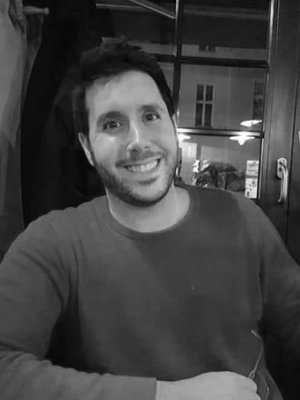
Ezra Tzfadya is currently the Iran Policy Fellow at the Johns Hopkins University School of Advanced International Studies in Washington D.C. He has recently submitted his doctoral dissertation in Islamic Studies at the Friedrich-Alexander University of Erlangen-Nuremberg, and has taught as visiting faculty at Indiana University-Bloomington’s Borns Jewish Studies Program as well as a lecturer in Oriental Studies (Wiss. Mitarbeiter) at the University of Bamberg.
His doctoral dissertation “Theocracy in Shia Islam and Judaism: Studies in Legal Theology” uses a medieval Jewish appropriation of legal-theological concepts from Shia Islam (Judah Halevi’s Kuzari) to establish a political- philosophic dialogue between the two religious traditions in modernity. Ezra has a B.A. in German and Arabic Language & Literature from Dartmouth College, an M.A. in Religion, Ethics and Politics from Princeton University.
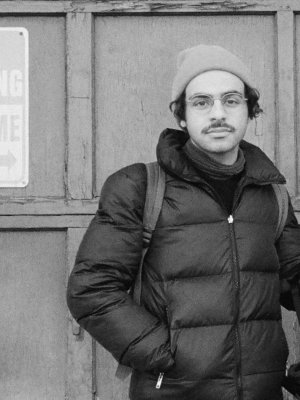
Michael Zalta is a writer, editor, and scholar pursuing his doctorate in Comparative Studies in Literature and Culture at the University of Southern California where he works between the disciplines of Black Studies, Jewish Studies, and Palestine Studies. His research concerns the epistemological limits of the Black and American Studies frameworks for thinking comparatively and transnationally about race by looking to histories of Black-Palestine solidarity and Euro-Modern figurations of the Jew, the Arab, and the Black and their translations/contestations across the Mediterranean and Arab worlds.
Program
December 7 – Tuesday
| 10:00-11:30 | Elchanan Reiner |
| 11:30-12:00 | Coffee Break |
| 12:00-13:30 | Elchanan Reiner |
| 13:30-14:30 | Lunch |
| 14:30-16:00 | Oded Schechter |
| 16:00-16:30 | Coffee Break |
| 16:30-18:00 | Oded Schechter |
December 8 – Wednesday
| 10:00-11:30 | Elchanan Reiner |
| 11:30-12:00 | Coffee Break |
| 12:00-13:30 | Elchanan Reiner |
| 13:30-14:30 | Lunch |
| 14:30-16:00 | Oded Schechter |
| 16:00-16:30 | Coffee Break |
| 16:30-18:00 | Oded Schechter |
December 9 – Thursday
| 10:00-11:30 | Elchanan Reiner |
| 11:30-12:00 | Coffee Break |
| 12:00-13:30 | Elchanan Reiner |
| 13:30-14:30 | Lunch |
| 14:30-16:00 | Oded Schechter |
| 16:00-16:30 | Coffee Break |
| 16:30-18:00 | Oded Schechter |









